Blogs and Articles
THE LIVES OF ‘WATER WIVES’ 💔
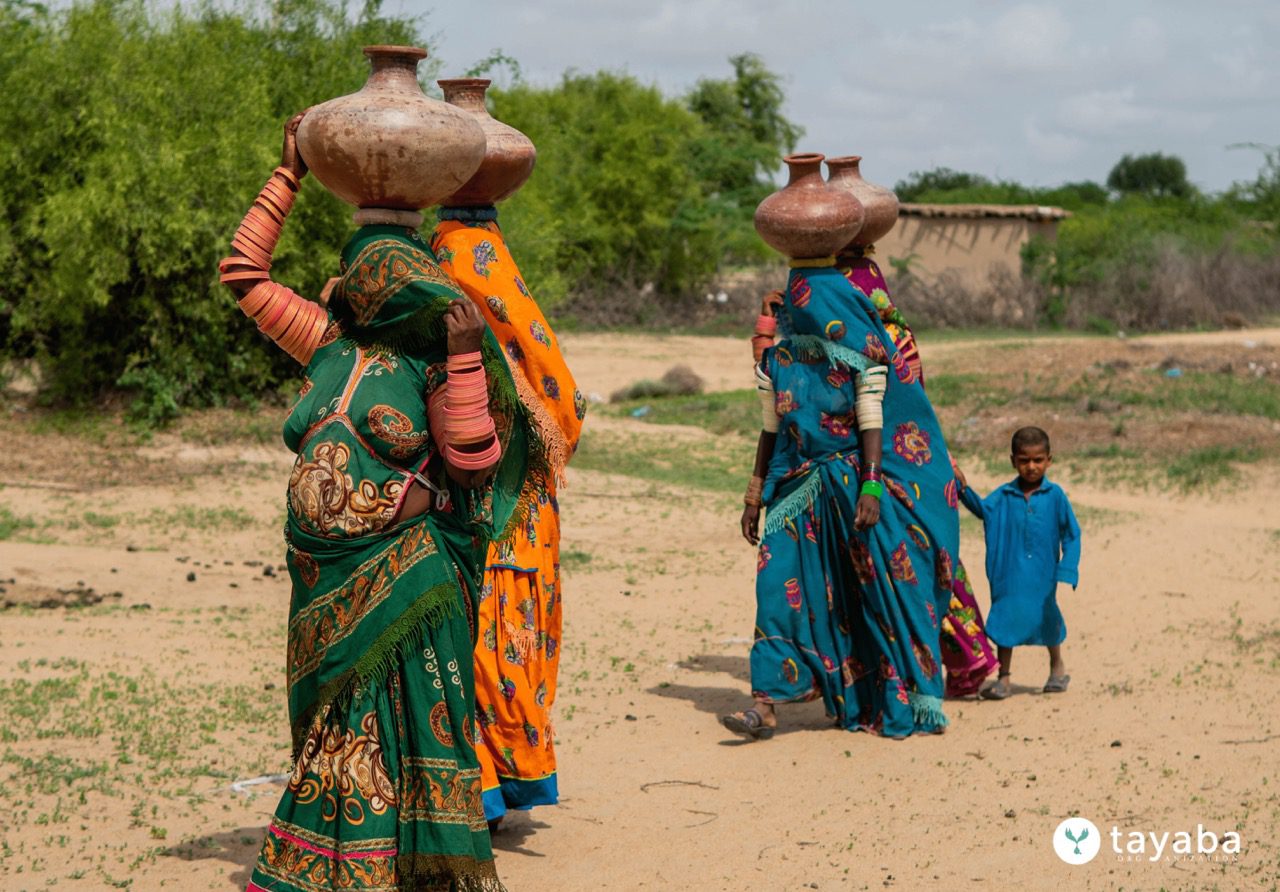
Photo by Tayaba Organisation – All Rights Reserved
The institution of marriage is typically associated with a lifelong partnership or, in most cases, could even be a social contract, but it is astounding to discover the primary reason for marriages in water-deprived villages like Dengamal in India.
What could be the reason that the men in Degamal resort to polygamy despite the practice being prohibited according to the local religious beliefs?
What critical needs are so grave that they become the guiding principles for the socio-cultural norms in thousands of villages in the region?
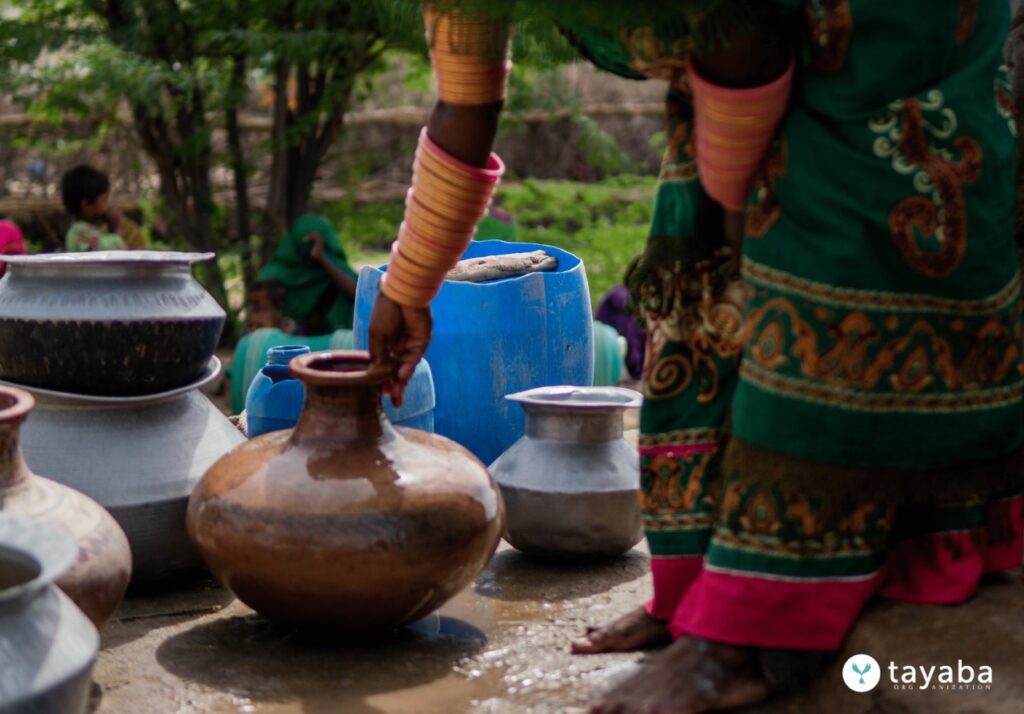
Photo by Tayaba Organisation – All Rights Reserved
The answer would leave most of us at a loss for words but might not surprise someone who can comprehend the adversity of the situation through their personal experiences.
The reason is the most significant survival resource- WATER!
This heart-rending reality is witnessed in the case study; “Water Wives of India.” This case study introduces a small village in India, Dengamal, where men marry 2-3 women just to meet their families’ water needs. This reality sheds light on the critical situation of the water crisis in rural areas and its multifaceted impacts on those experiencing it.
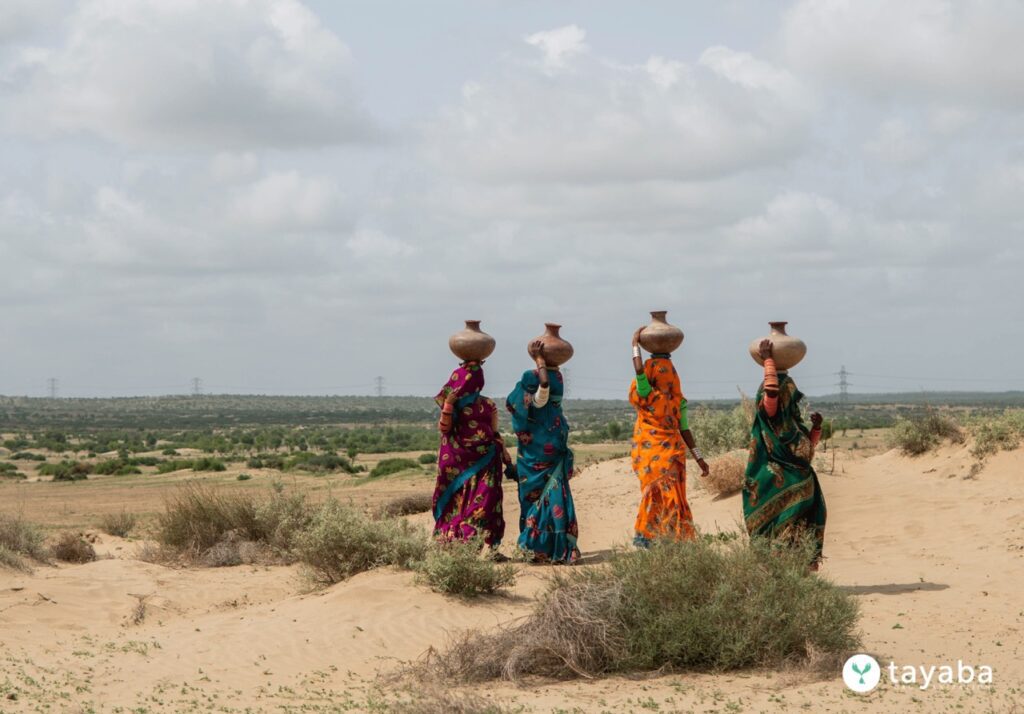
Photo by Tayaba Organisation – All Rights Reserved
A very concerning part of this tradition is the fact that the wive(s) of these men often advocate for their additional marriages. The primary reason for this is
‘more hands and bodies to fetch water over anything else’.
Women in Dengamal are expected to endure an unsustainable amount of intensive physical and emotional labour daily just to gather enough water for the survival of their families, in addition to their overwhelming household chores. Consequently, they succumb to the practice in hopes that another woman will assume responsibility for half of the domestic duties and bring some ease into their lives.
The water wives are often divorced, widowed, and single mothers who struggle to achieve financial and social stability in a predominantly patriarchal society. Hence, these marriages become necessary for them to achieve social value, shelter, and financial support.
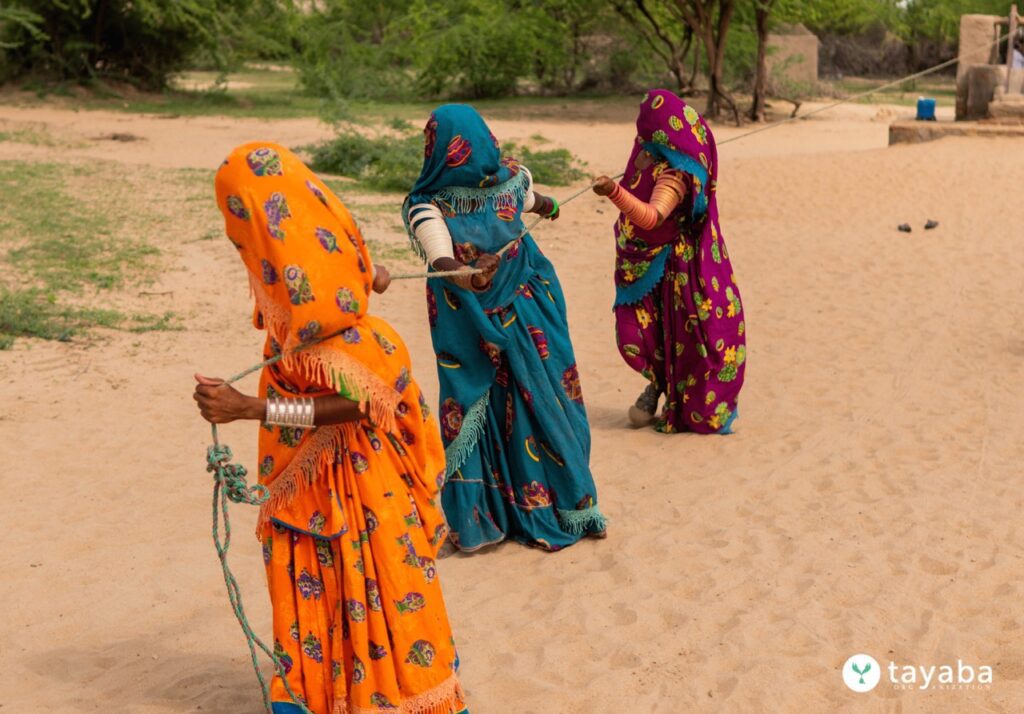
Photo by Tayaba Organisation – All Rights Reserved
Life is exceptionally challenging for the ‘water wives.’ Multiple childbirths and extensive household chores, especially water-hauling tasks leave them vulnerable to chronic illness due to physically debilitating conditions.
Moreover, the patriarchal traditions and limited financial growth opportunities for women create further hindrances in their empowerment and eventually enable domestic abuse as women ultimately depend on men for their survival. In such conditions, women are prone to experiencing serious mental abuse and illnesses. This explains why some studies reveal a higher proportion of women committing suicide in desert areas such as Tharparkar due to a lack of resources and poverty.
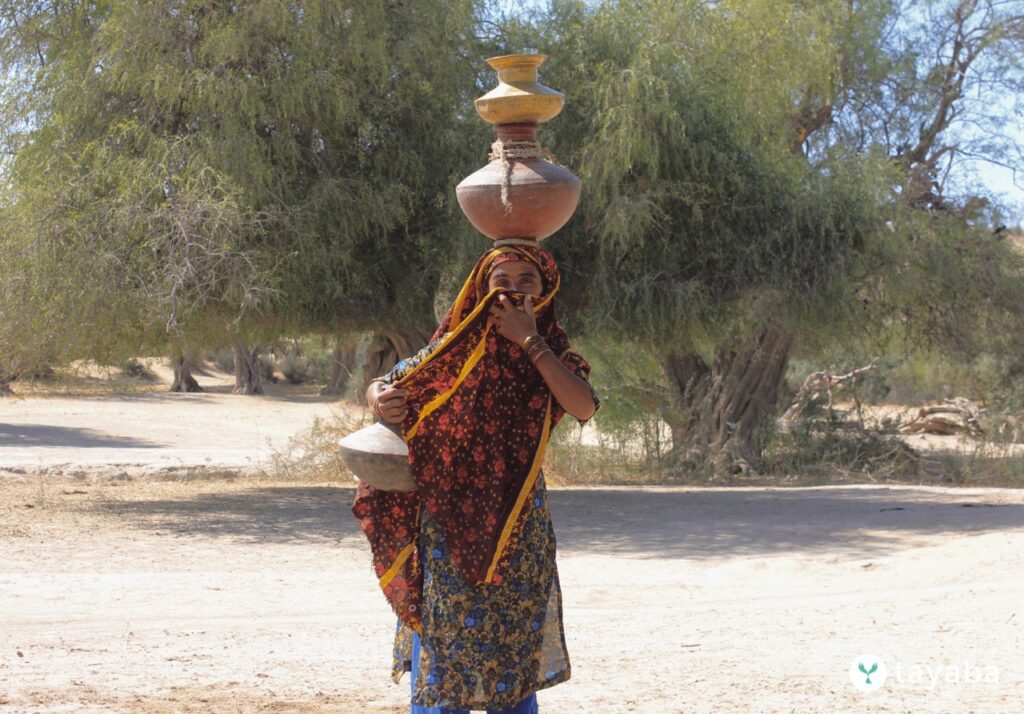
Photo by Tayaba Organisation – All Rights Reserved
Acknowledging the gravity of this unfortunate situation that actively contributes to gender discrimination by reinforcing discriminatory roles and practices is pertinent. Dengamal is just one of the 19000 villages in the region with limited water access.
This raises the vital question of how uncommon this practice really is, despite being detrimental to women’s social and psychological well-being.
The situation is far more common than we perceive.
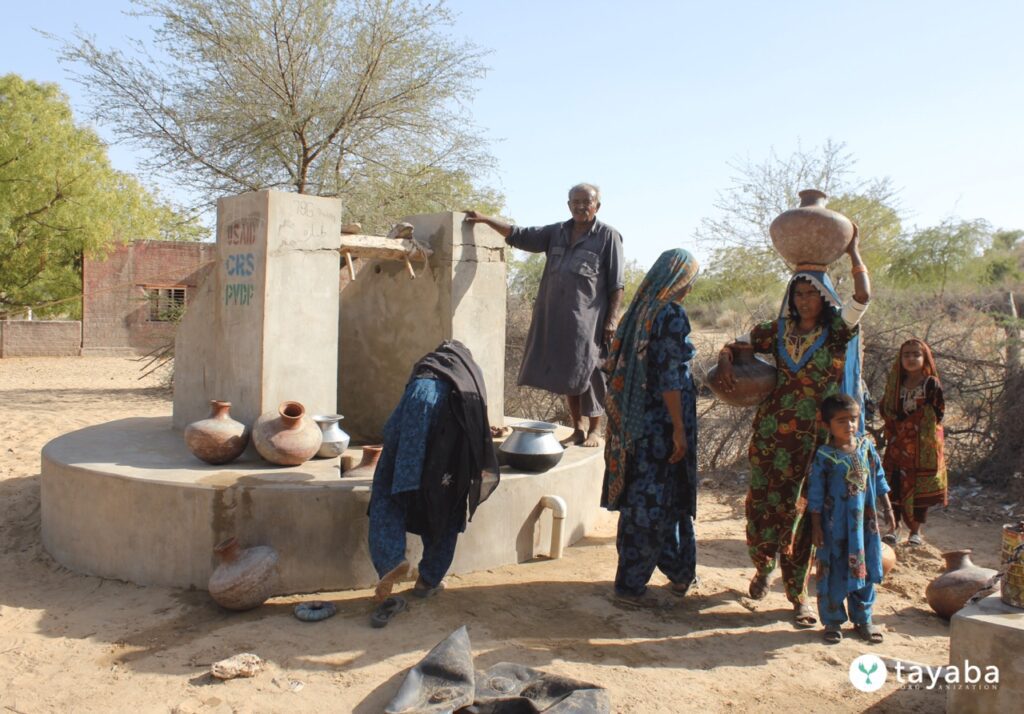
Photo by Tayaba Organisation – All Rights Reserved
This practice of marrying ‘wives for water’ is unfortunately prevalent in Pakistan as well. Women in water-deprived areas are treated as mere means to transport a commodity as their primary role and value are reduced to ‘water labourers’. These inhumane practices have been persistent in thousands of villages in Pakistan shaping the precious lives of millions of women who are deprived of basic education or opportunities to generate income, forcing them to abide by sociocultural practices that constantly undermine their worth and abilities. However, there is a dearth of literature around it, hence most of the time, this inhumane practice is not reported or goes undocumented due to the widely practised religion which permits polygamy.
To learn more about the ‘water wives’ and the gendered socio-economic impact of the water crisis, listen to Tayaba’s Podcast! Link below.
Published on 11 November, 2022
